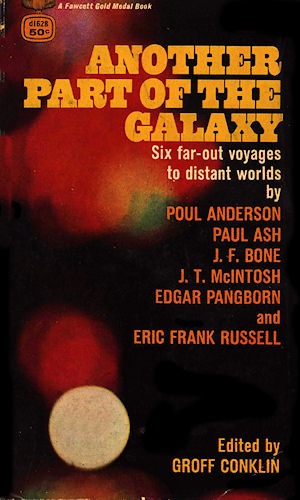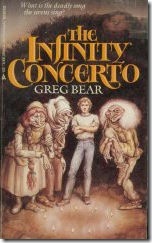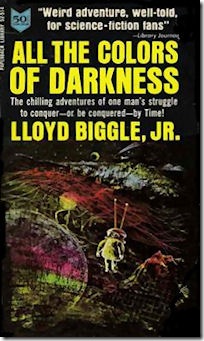 Another Side of the Galaxy (1966), edited by Groff Conklin is the second Conklin anthology that I’ve read in this series. The previous Conklin Anthology dealt primarily with golden age writers. I need to refine that a little in that following the incredible decade of the 1940s where John W. Campbell, Jr.’ s Astounding Science Fiction magazine created modern SF (the golden age), there followed the 1950s where Campbell, although still a powerful force, slowly lost his leading position. Readers began to tire of Campbell’s gadget based technology stories and new pulps like The Magazine of Fantasy & Science Fiction, Galaxy and Worlds of If sprang up and presented alternative forms of SF. Campbell’s abrasive style and absolute certainty of his opinions caused him to lose, one by one, most of his stable of writers. These were the same writers that he had discovered and guided into modern Science Fiction. By 1960, Astounding was still telling technological engineering based gadget stories while the other magazines were exploring characters, social issues and literary forms.
Another Side of the Galaxy (1966), edited by Groff Conklin is the second Conklin anthology that I’ve read in this series. The previous Conklin Anthology dealt primarily with golden age writers. I need to refine that a little in that following the incredible decade of the 1940s where John W. Campbell, Jr.’ s Astounding Science Fiction magazine created modern SF (the golden age), there followed the 1950s where Campbell, although still a powerful force, slowly lost his leading position. Readers began to tire of Campbell’s gadget based technology stories and new pulps like The Magazine of Fantasy & Science Fiction, Galaxy and Worlds of If sprang up and presented alternative forms of SF. Campbell’s abrasive style and absolute certainty of his opinions caused him to lose, one by one, most of his stable of writers. These were the same writers that he had discovered and guided into modern Science Fiction. By 1960, Astounding was still telling technological engineering based gadget stories while the other magazines were exploring characters, social issues and literary forms.
Groff Conklin’s Possible Worlds of Science Fiction presented stories from the 1940s and were mostly Campbell type stories. Another Side of the Galaxy contrasts these with the new writers of the 1950s who wrote about non-technical people with deep emotions, living in interesting societies and coping with problems that could not be solved with a slide rule.
Another Side of the Galaxy starts with a The Red Hills of Summer by one of my favorite writers, Edgar Pangborn. Pangborn produced two of my top 10 SF books, The Judgment of Eve and Davy, but was not as prolific as other writers. It is interesting that the protagonist in The Red Hills of Summer is named Davy. The story, set in a post apocalyptic future, involves humans fleeing a dying Earth, searching for planet where humanity can settle and grow and perhaps, correct the mistakes made on Earth. Four explorers are chosen to land on the planet to see if they can survive with the knowledge that they will never be allowed to return to space. The settlers cannot risk the future of the human race on a hidden disease that might enter the main ship and destroy them all.
The Red Hills of Summer is a love story between a couple who must face the unknown together, but are not quite committed to their love. Although there is little else to the plot other than coping with each of the problems as they arise, we become involved with the lives of the lovers and the story is how they finally come to grips with their own relationship. It is well done and first appeared in F&SF magazine, being the kind of transcendent writing and concepts that they looked for in a story. It was wonderful to find a new (to me at least) Pangborn story.
Paul Ash is in reality Pauline Ashwell, a Hugo nominated Science Fiction writer. Her story Big Sword was published in Astounding. I would guess that Campbell talked her into changing the gender of her pen name to appeal to his overwhelmingly male readership. The story is an odd choice for Campbell because it involves a child with emotional problems and the science is an ecological puzzle on a distant planet. Campbell was nuts about ESP, which figures in this story, and this might explain why he bought it. The conflict involves a child with ESP whose parents are divorced. He is taken by his unemotional and distant father, a spaceship captain, to a strange planet. In an alternate story line, the protagonist is an alien named Big Sword, who needs to communicate with the humans to solve his own serious ecological problem. The resolution is ingenious and satisfying.
The First Lady by J.T. McIntosh was published in Galaxy. It would not have fit in Astounding because the central conflict involves sociology rather than technology. The premise is that a pair of special government agents has to escort a young woman to a planet where she would be the first female on the planet. This would have been a reasonable plot line 1953, although ludicrous by today’s standards. McIntosh envisions a system where planets are settled by men only and then later a woman shows up to be the "First lady". She carries the first child and if it is healthy, the colony is allowed to continue. What makes this a good story, in spite of the silly premise, is the relationships between the male and female agent and the future first lady as they travel in the cramped rooms of the spaceship on the way to the new colony. It becomes a love triangle, which is intensified by the fact that it cannot continue once the planet is reached. The tension involves whether or not the future child will live and the colony survive, as well as the fact that one of the agents knows what the outcome will probably be.
J.F. Bone, Insidekick, is the story of a man who suddenly finds that he can do almost anything because a strange creature has entered his mind in a symbiotic relationship. The title is a pun on sidekick (in-sidekick, get it?). Jesse F. Bone was a prominent veterinarian and was nominated for a Hugo award. He must have been a friend of Robert A. Heinlein because he is mentioned in the Cat Who Walks Through Walls as the veterinarian fetched from another universe to help save the cat Pixel’s life after the raid to save Mike. He is known for his book of sexual mores and animal rights, The Lani People (Available at Project Gutenberg).
The Live Coward by Poul Anderson is a Planetary League Story, one of a series involving diplomacy in a universe where there are literally millions of worlds settle by Humanity and their alien allies. It is an interesting story where Anderson get’s his character Wing Alak, into difficult situation and then bails him out with ingenuity. I first read this in the pages of a an old Astounding from my uncle’s collection that he kept in his attic. I was convinced that these old magazines were a thing of the distant past and did not exist any more, until I found Analog Magazine at a small soda shop down in the village of Nyack.
Eric Frank Russell’s Still Life is the weakest story in the bunch. It deals with the red tape of a huge and top heavy galactic empire and how a junior clerk goes about finding alternate paths through the miles of regulations in order to get a life saving piece of equipment to a distant colony. I work for the County Government and I am not interested in red tape, regulations or bureaucratic nonsense – I see enough at work.
These stories average around 13,000 words each and are Novelettes rather than short stories. The Edgar Pangborn story would be classified strictly as a Novella. I like these longer form short stories. Magazine editors seem to have liked them in the past, but modern editors, especially in the on-line magazines prefer shorter stories less than 5,000 words. The main pro magazines still regularly publish longer stories in the 7,000 to 15,000 word range. It is a conundrum that modern readers seem to prefer short-short stories over the longer ones, yet most modern novels are padded out from 120,000 to as high as 200,000 words. I have read that some romance publishers have gone back to the shorter snack-size 40k book. I wonder if anyone has test marketed shorter SF novels lately. 40k to 60K is a good length for a novel.






